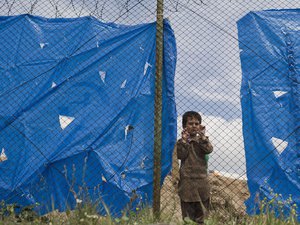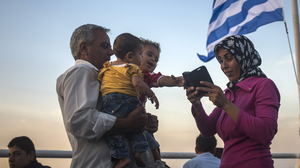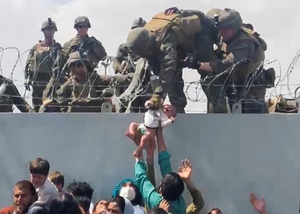The world is facing the largest numbers of people displaced due to conflict and persecution since World War II. Refugees and internally displaced persons are not getting the support they need and deserve, with tragic consequences.
Xenophobia and extremist nationalism are on the rise. Nations are closing their borders to refugees, who are seen as security threats.
We need a new approach to tackle the roots of the problem: a crisis of leadership and an absence of political will. But, to secure public support, political leaders must first demonstrate that borders are secure and that migration is managed.
The international community must respond with a comprehensive approach that includes responsibility sharing, support for countries hosting refugees, and better support for refugees, as well as for internally displaced persons fleeing violence and conflict but remaining within their own borders.
Those responsible for causing displacement cannot continue to go unpunished and undeterred. Donors and other countries must also be accountable for their commitments to the international refugee system.
Year after year, millions of dollars in pledges go unfulfilled, adding to the funding shortfall, while the cost of helping refugees increases. The status quo of voluntary donations is unacceptable. Financial commitments should be reviewed and supplemented by innovative financing mechanisms with private sector support.
Building on the foundation of the UN Global Compact on Refugees, the World Refugee Council, an independent global body made up of political leaders, policy advisers, academic experts and civil society representatives, has focused on four key areas of the global refugee system: political will, accountability, finance and governance.
The Council’s report — A Call to Action: Transforming the Global Refugee System — is the culmination of over two years of research and meetings around the world with key stakeholders, including refugees. This report charts a major, new course for significant reform of the global refugee system. Its recommendations are bold but also realistic.
Implementing these actions will require support — and leadership — from many people and groups, including refugee-hosting countries, progressive donor countries, civil society organizations, the private sector, scholars, and refugees and IDPs.
More than half of refugees are women and girls who desperately need protection. Leadership from them is vital.
Through a new agile, collaborative and inclusive Global Action Network for the Forcibly Displaced, the World Refugee Council’s recommendations can be turned into actions.
Please read the report.
Get involved.


